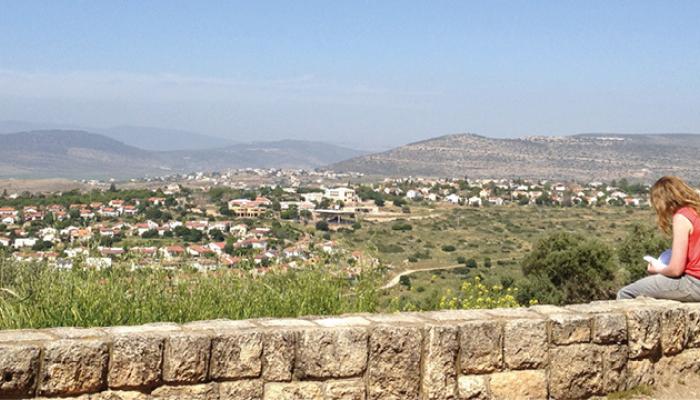
3.3 Cila është mënyra më e mirë për t’u lutur?
Çdokush mund të lutet kudo [> 3.20] në çdo kohë, vetëm ose në një grup. Ju ndërtoni një marrëdhënie me Zotin përmes lutjes personale, kur jeni vetëm me Të. Se si lutesh nuk ka shumë rëndësi: Zoti është i kënaqur që je aty.
Kur luteni, është e rëndësishme që thjesht të flisni nga zemra për gjërat që ju shqetësojnë. Është ide e mire të gjesh kohë çdo ditë për lutje. Në mbrëmje, mund të reflektoni për ditën tuaj në lutje dhe të falenderoni Zotin për gjithçka që keni marrë prej Tij.
What are the names of the five main types of prayer?
The five main types of prayer are blessing and adoration, prayer of petition, prayer of intercession, prayer of thanksgiving, and prayer of praise. [Youcat 483]
What is a prayer of blessing?
A prayer of blessing is a prayer that calls down God’s blessing upon us. From God alone all blessings flow. His goodness, his closeness, his mercy—that is blessing. “May the Lord bless you” is the shortest prayer of blessing.
Every Christian should call down God’s blessing upon himself and upon other people. Parents can trace the sign of the Cross on their child’s forehead. People who love each other can bless one another. Furthermore a priest, by virtue of his office, blesses explicitly in the name of Jesus and on behalf of the Church. His request for blessings is made especially effective through Holy Orders and the prayer power of the whole Church. [Youcat 484]
Why should we adore God?
Every person who understands that he is God’s creature will humbly recognize the Almighty and adore him. Christian adoration, however, sees not only the greatness, omnipotence, and holiness of God. It also kneels before the divine Love that became man in Jesus Christ.
Someone who really adores God kneels down before him or prostrates himself on the ground. This gives expression to the truth about the relation between man and God: he is great and we are little. At the same time, man is never greater than when he freely and devoutly kneels down before God. The unbeliever who is seeking God and is beginning to pray can find God in this way. [Youcat 485]
Why should we petition God?
God, who knows us through and through, knows what we need. Nevertheless, God wants us to ask, to turn to him in times of need, to cry out, implore, lament, call upon him, indeed, even to struggle with him in prayer.
Certainly God does not need our petitions in order to help us. It is for our own sake that we are supposed to offer prayers of petition. Someone who does not ask and does not want to ask shuts himself up in himself. Only a person who asks opens himself and turns to the Author of all good. Someone who asks goes back home to God. Thus the prayer of petition brings man into the right relationship to God, who respects our freedom. [Youcat 486]
Why should we petition God for other people?
As Abraham intervened by his prayer for the inhabitants of Sodom, as Jesus prayed for his disciples, and as the early Christian community looked “not only to [their] own interests, but also to the interests of others” (Phil 2:4), so too Christians always pray for everyone—for people who are dear to their hearts, for people who are not close to them, and even for their enemies.
The more a person learns to pray, the more profoundly he realizes that he has ties to a spiritual family through which the power of prayer is made effective. With all my concern for the people whom I love, I stand in the midst of the family of mankind and may receive strength from the prayers of others and may call down divine assistance for others. [Youcat 487]
Why should we thank God?
Everything that we are and have comes from God. Paul says, “what have you that you did not receive?” (1 Cor 4:7). Being grateful to God, the giver of all good things, makes you happy.
The greatest prayer of thanks is the “Eucharist" (“thanksgiving” in Greek) of Jesus, in which he takes bread and wine so as to offer in them to God all of creation, transformed. Whenever Christians give thanks, they are joining in Jesus’ great prayer of thanksgiving. For we, too, are transformed and redeemed by Jesus, and so from the depths of our hearts we can be grateful and tell God this in a variety of ways. [Youcat 488]
What does it mean to praise God?
God needs no applause. But we need to express spontaneously our delight in God and the rejoicing in our hearts. We praise God because he exists and because he is good. We thereby join even now in the eternal praise of the angels and saints in heaven. [Youcat 489]
Can you pray anywhere?
Yes, you can pray anywhere. Nevertheless a Catholic will always look also for those places where God “dwells” in a special way. Above all these are Catholic churches, where our Lord is present in the tabernacle under the appearance of bread.
It is very important for us to pray everywhere: in school, on the subway, during a party, in the midst of our friends. The whole world has to be drenched with blessings. But it is also important for us to visit sacred places, where God waits for us, so to speak, so that we can rest in his presence, be strengthened, replenished, and sent forth by him. A genuine Christian is never just sightseeing when he visits a church. He lingers a moment in silence, adores God, and renews his friendship and love for him. [Youcat 498]
Shën Gjon Maria Vianej i mësoi famullitarët e tij kryesisht nëpërmjet dëshmisë së jetës së tij. Nga shembulli i tij ata mësuan të luteshin, duke u ndalur shpesh para tabernakullit për një vizitë te Jezusi në të Shenjtërueshmin Sakrament . "Nuk është e nevojshme të thoni shumë për t'u lutur mirë" - [ai] u shpjegoi atyre - "Ne e dimë se Jezusi është atje në tabernakull: le t'ia hapim zemrat tona atij, le të gëzohemi në praninë e tij të shenjtë. Kjo është lutja më e mirë ”. [Papa Benedikti XVI, Letër vjetore për meshtarët , 16 qershor 2009]





